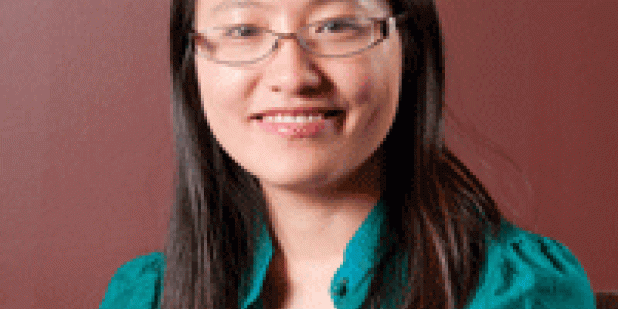Join us for a free one-day workshop for educators at the Japanese American National Museum, hosted by the USC U.S.-China Institute and the National Consortium for Teaching about Asia. This workshop will include a guided tour of the beloved exhibition Common Ground: The Heart of Community, slated to close permanently in January 2025. Following the tour, learn strategies for engaging students in the primary source artifacts, images, and documents found in JANM’s vast collection and discover classroom-ready resources to support teaching and learning about the Japanese American experience.
Who Is Speaking to Whom? Mapping Poetic Roles for Poetry in the Five-Syllable Line in Early Medieval China
Qiulei Hu gives a talk on poetry in Early Medieval China.
Where

Qiulei Hu, Assistant Professor, Chinese Language and Literature Whitman College
For more information, please email jsbyers@uw.edu.
One of the first and foremost steps in traditional Chinese poetic interpretation is to determine who is speaking to whom in a poem. As many poems are meant to be read as first-person monologue, the speaker’s role, usually characterized by a definite gender, identity and relationship with the addressee, directly affects the way in which readers understand the meaning and implications of a poem. A close examination, however, reveals remarkable indeterminacy in poetic roles in early poetry in the five-syllable line. By comparing some poems with their imitations or interpretations in the following centuries, I will show that by the fifth and sixth centuries, this indeterminacy came to be seen as a problem and various efforts were made to amend it. At the same time conventions were established for representing and recognizing different roles in poetic expression. Through an analysis of the greater cultural context, including the changing concept about authorship and canonization of early poems in the five-syllable line, I will also explain why this change of perception occurred during the fifth and sixth centuries. This study attempts to shed light on how our received traditions came into being, and draw attention to a more diverse reading of early poetry in the five-syllable line.
Qiulei Hu is Assistant Professor of Chinese at Whitman College, where she teaches courses on pre-modern Chinese literature and Chinese language. She received her MA in Chinese literature from Peking University and PhD in pre-modern Chinese literature from Harvard University. She specializes in early medieval Chinese poetry, with a focus on gender issues and the tradition of male writing in the feminine voice. Her recent publications include “Reading the Conflicting Voices: An Examination of the Interpretative Traditions about ‘Han Guang’” in Chinese Literature: Essays, Articles, Reviews 34 (2012). She is currently working on a book project based on her dissertation, “Gender and Voice in Early Medieval Chinese Poetry,” in which she discusses how poetic expressions about women and female gender markers were established and stabilized during the third to sixth century.
Featured Articles
Please join us for the Grad Mixer! Hosted by USC Annenberg Office of International Affairs, Enjoy food, drink and conversation with fellow students across USC Annenberg. Graduate students from any field are welcome to join, so it is a great opportunity to meet fellow students with IR/foreign policy-related research topics and interests.
RSVP link: https://forms.gle/1zer188RE9dCS6Ho6
Events
Hosted by USC Annenberg Office of International Affairs, enjoy food, drink and conversation with fellow international students.
Join us for an in-person conversation on Thursday, November 7th at 4pm with author David M. Lampton as he discusses his new book, Living U.S.-China Relations: From Cold War to Cold War. The book examines the history of U.S.-China relations across eight U.S. presidential administrations.




